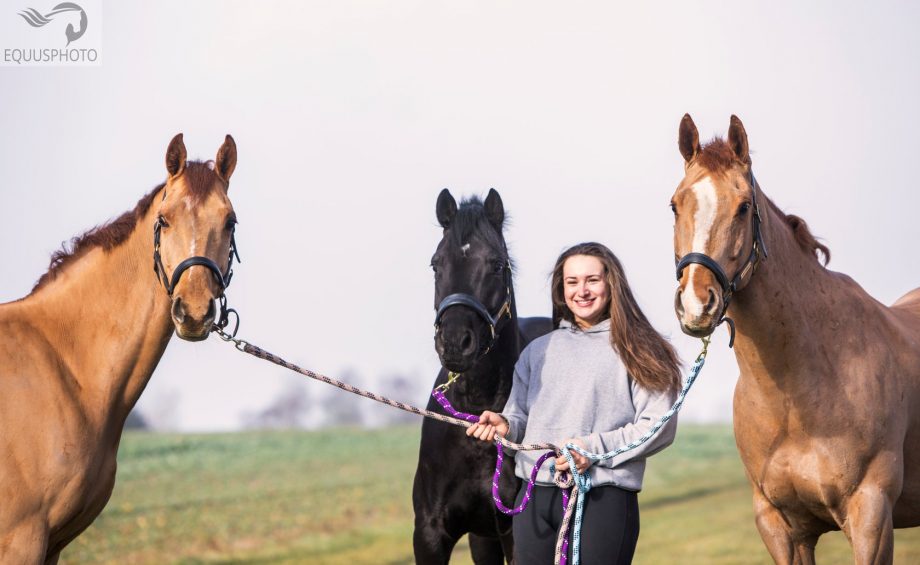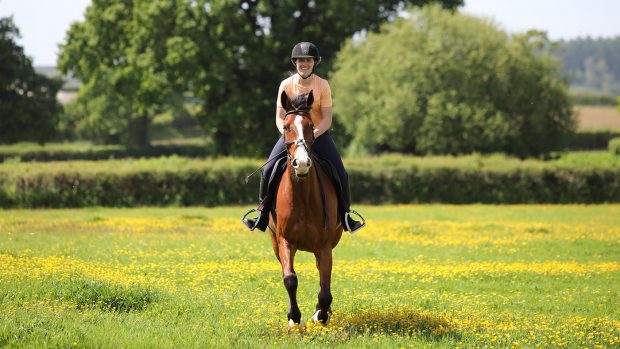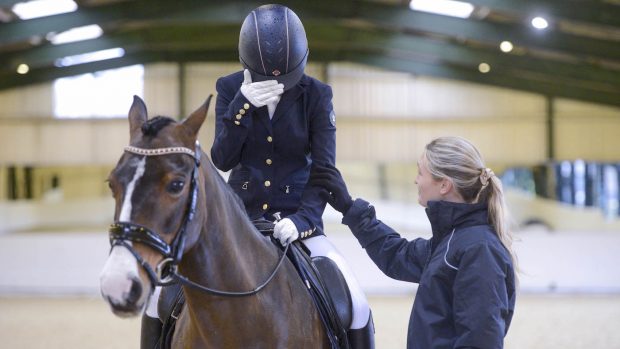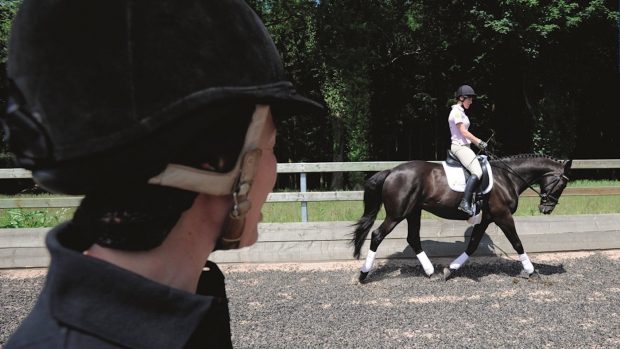The subject I am going to write about today is something that everyone will have experienced; if you haven’t — you’re lying: how to deal with things when they’re not going so well, specifically at a competition.
I don’t hold all the secrets to dealing with emotions well, far from it really, BUT I do know that feelings must be felt. The reason FEELING your emotions is so important is because if you don’t allow yourself to feel them, they will fester, and present themselves in other ways; no matter how far down you try to bury them within yourself.
There are lots of different ways that you may let your negative feelings out without realising. My most common way is to ‘snap’ at people. For me, this is something that I have to really actively try not to do, to the point where my routine after a phase out eventing is taking myself into the lorry (by myself) for just five minutes, or longer if I need it. I realise that this sounds like I am a spoilt little rich kid stropping off to her lorry, but that’s not the case!
The reason I do this is so I have a ‘safe space’ to feel anything I need to, and to rationalise the phase I have just done. This doesn’t necessarily have to be all bad. It’s great to do this when you have had a positive ride too. In my case, I find it necessary to do this alone, so I feel like I can feel without judgement (not that any of my team would be judgey, but it is hard to tell someone how you are feeling if you don’t even know yourself, so it may come out wrong.).
I am a serial over-thinker. I like to ruminate. A LOT. So for me it is extremely important to take myself off to my safe space, and just have a think. Have a think about how I am feeling, what I am disappointed with, and what I am pleased with. For every negative I take away from whatever I have just done, I make myself think of a positive. Say I had a nightmare of a dressage test, I will sit down, cry if I need to.
NOTE: Some of you reading this may think I am being overdramatic by saying I may cry after dressage tests or a bad round. It is SUCH a journey to battle your way to a competition, so much preparation goes into those four minutes in the white boards. My whole life leads up to competitions as I am a professional rider. You pin so many hopes and dreams onto these days that when it all comes crumbling down, it is painful. It is so emotionally draining when it goes right, let alone when it goes wrong!
Anyway continuing on…
I will take a few deep breaths, and remind myself that those four minutes are now in the past, we can’t change them. Next, I will begin to rationalise. By this, I mean I will think ‘ok, my mediums were terrible. Why?’ I’ll watch the video of the test, and see that maybe he wasn’t reactive enough to my leg. So now I can plan to improve this for next time, by spending more time on this in the warm-up before the test, and practising this at home. I think of the bad bits, one by one, and calmly rationalise WHY each one happened.
NB: THIS MUST BE IN A PRODUCTIVE WAY — I cannot stress this enough. If you’re not sure why things went wrong, do not listen to your self-doubt and just assume it is because you are a bad rider. Ask your trainer. Do not jump to conclusions.
This gives you control over these negative moments. You now have a plan for the future to improve what happened in the past. You can do something about these mistakes, and that takes the power away from them, and over to you. You must always remember that yes, everything going perfectly and you winning would be amazing; but that every bad day, every bad ride, is a lesson, and a stepping stone towards that win. If everything went perfectly all the time, you would learn absolutely nothing. Rationalising the bad bits also takes the emotion away from them, and makes you think of them in a calm, more physical way.
Now that I have let myself be upset, or angry, and then rationalised (and made sense of the feelings), I then try my best to let the feelings go. This is so important! If I do not let these feelings go, I will continue the day full of self-doubt, and ride badly as a result. I will stay frustrated and react more strongly to the horse if they are naughty, and ride badly as a result. I will feel anxious that I will make more mistakes, and ride badly as a result. I will snap at those trying to help me because I am frustrated with myself.
You have to accept that the ‘blips’ happened in the moment, and that that moment is gone.
Article continues below…
You might also be interested in:

Claire Drey-Brown’s we need to talk blog: sometimes things just suck
Claire talks about living with permanent pain

Subscribe to Horse & Hound magazine today – and enjoy unlimited website access all year round
Something that helps me also when a phase — again, let’s say the dressage — went badly, I think of the ‘event’ as a dressage competition, a showjumping competition, and a hunter trial, rather than the whole thing as one. This really helps me to ‘put a lid on’ the bad phase, and move onto the next without thinking of how the previous phase may affect my overall score etc. If you think like that, you may as well give up as soon as it goes a bit downhill. If you have a defeatist attitude, the rest of the day won’t go as well as you can make it go.
Let yourself feel, rationalise, and let it go.
Claire
For all the latest news analysis, competition reports, interviews, features and much more, don’t miss Horse & Hound magazine, on sale every Thursday.



